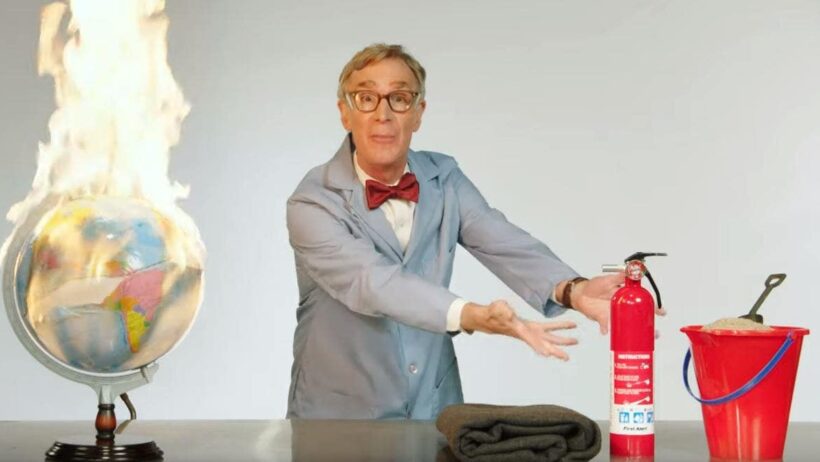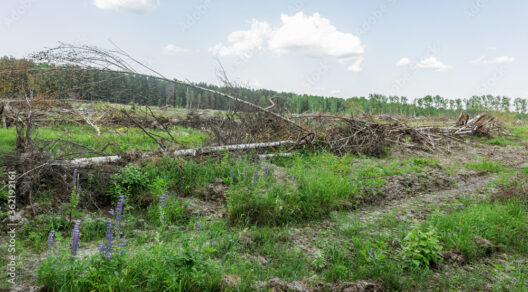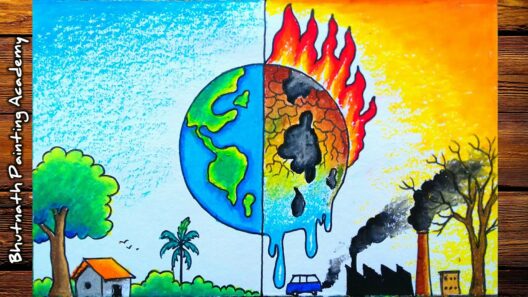The phenomenon of global warming has been a subject of increasing interest and controversy, particularly as the impacts of climate change become more apparent across the globe. Among the prominent voices in the climate change dialogue is Bill Nye, popularly known as “Bill Nye the Science Guy.” With his educational background in mechanical engineering and his enthusiastic approach to scientific communication, Nye has emerged as a fierce advocate for raising awareness about the realities of climate change. His statements often serve as a bellwether in the ongoing debate over global warming, reflecting a broader societal struggle to comprehend and address this critical issue.
The crux of the global warming debate hinges on a fundamental question: Does Bill Nye believe in global warming? His unequivocal answer is yes. Nye aligns himself with the prevailing scientific consensus that conditions on our planet are rapidly deteriorating due to human-induced greenhouse gas emissions. He uses his platform to underscore the urgency of the situation, often employing vivid imagery to convey the profound implications of inaction. For example, he has described the Earth as being “on fire,” a stark metaphor signaling that the ramifications of climate change are not just looming threats—they are here now.
Nye’s commitment to promoting scientific literacy is noteworthy. He attempts to counteract skepticism by educating the public about the mechanisms of climate change. Understanding the greenhouse effect—the process by which gases like carbon dioxide and methane trap heat in the atmosphere—is essential for grasping how human activities are exacerbating global warming. By breaking down complex scientific concepts into digestible forms, Nye effectively engages audiences and encourages critical thinking. His engaging demeanor coupled with an evidence-based approach allows him to resonate with both children and adults alike, fostering a culture of inquiry.
Despite his efforts, skepticism regarding climate change persists. This skepticism can be attributed to various interrelated factors, including political polarization, misinformation, and psychological barriers that affect how people perceive scientific data. Individuals are often influenced by their social environments and media exposure, leading to disparate beliefs regarding climate science. When figures like Nye challenge long-standing misconceptions, they inevitably encounter resistance, revealing a dichotomous landscape where facts are overshadowed by fear, denial, and anxiety.
Another interesting dimension of the climate change debate is the role of media figures and celebrities like Bill Nye. While they often possess the ability to galvanize public support for environmental causes, their celebrity status can also detract from the core scientific message. Nye’s charismatic presence can at times overshadow the empirical evidence, leading to a perception that he is merely an entertainer rather than an authoritative voice in the scientific community. This dichotomy raises critical questions about the trustworthiness of public figures in science communication and the appropriate ways to frame discussions around such an urgent global crisis.
Nye’s engagement with the public is multifaceted. He frequently participates in panel discussions, educational programs, and television appearances, advocating for the adoption of renewable energy sources, sustainable practices, and a reduction in carbon emissions. His ability to simplify complex scientific data into relatable terms encourages audiences to take personal responsibility for their environmental impact. As a proponent of science-driven solutions, Nye champions policies that promote energy efficiency and the transition to sustainable resources. His activism extends to supporting organizations committed to environmental advocacy, demonstrating a holistic approach to tackling the climate crisis.
The pervasive skepticism surrounding climate change also necessitates addressing misconceptions head-on. Nye positions himself as a beacon of rationality, diligently challenging unfounded beliefs through factual rebuttals. He often emphasizes the consensus among climate scientists—over 97% agree that climate change is primarily driven by human activity. Nye’s relentless pursuit of truth serves to reaffirm the integrity of scientific inquiry, reinforcing the notion that skepticism should be grounded in evidence rather than ideological biases.
The psychological aspects of climate change denial offer another layer of complexity. Cognitive dissonance often leads individuals to reject information that conflicts with their established beliefs. This resistance to accepting the reality of global warming highlights the importance of gradualism in education and outreach. Nye advocates for constructive dialogue that respects differing viewpoints while emphasizing the critical role of empirical data. By fostering an environment conducive to open discussion, he seeks to bridge divides and promote a collective understanding of climate impacts.
Nye’s unwavering commitment to advocating for climate action reflects a broader societal awakening to the consequences of climate change. As extreme weather events become more frequent, public awareness grows, motivating individuals to engage with environmental issues. Nye’s work serves as a reminder that the topic of global warming is not merely an abstract concept relegated to scientific circles—it is an urgent global issue that requires immediate attention from all sectors of society. His tireless efforts to champion sustainable practices and promote scientific understanding inspire a new generation of environmental advocates.
In conclusion, Bill Nye’s belief in global warming is firmly rooted in scientific consensus, and his dedication to educating the public is commendable. The skepticism surrounding climate change must be confronted with accurate information and respectful discourse. The role that public figures play in this debate cannot be underestimated; their influence can mobilize individuals to take action. Ultimately, as the world grapples with the impending consequences of climate change, the importance of informed dialogue and advocacy is paramount. As Nye eloquently asserts, acknowledging and addressing the realities of global warming is essential for securing a more sustainable future.








